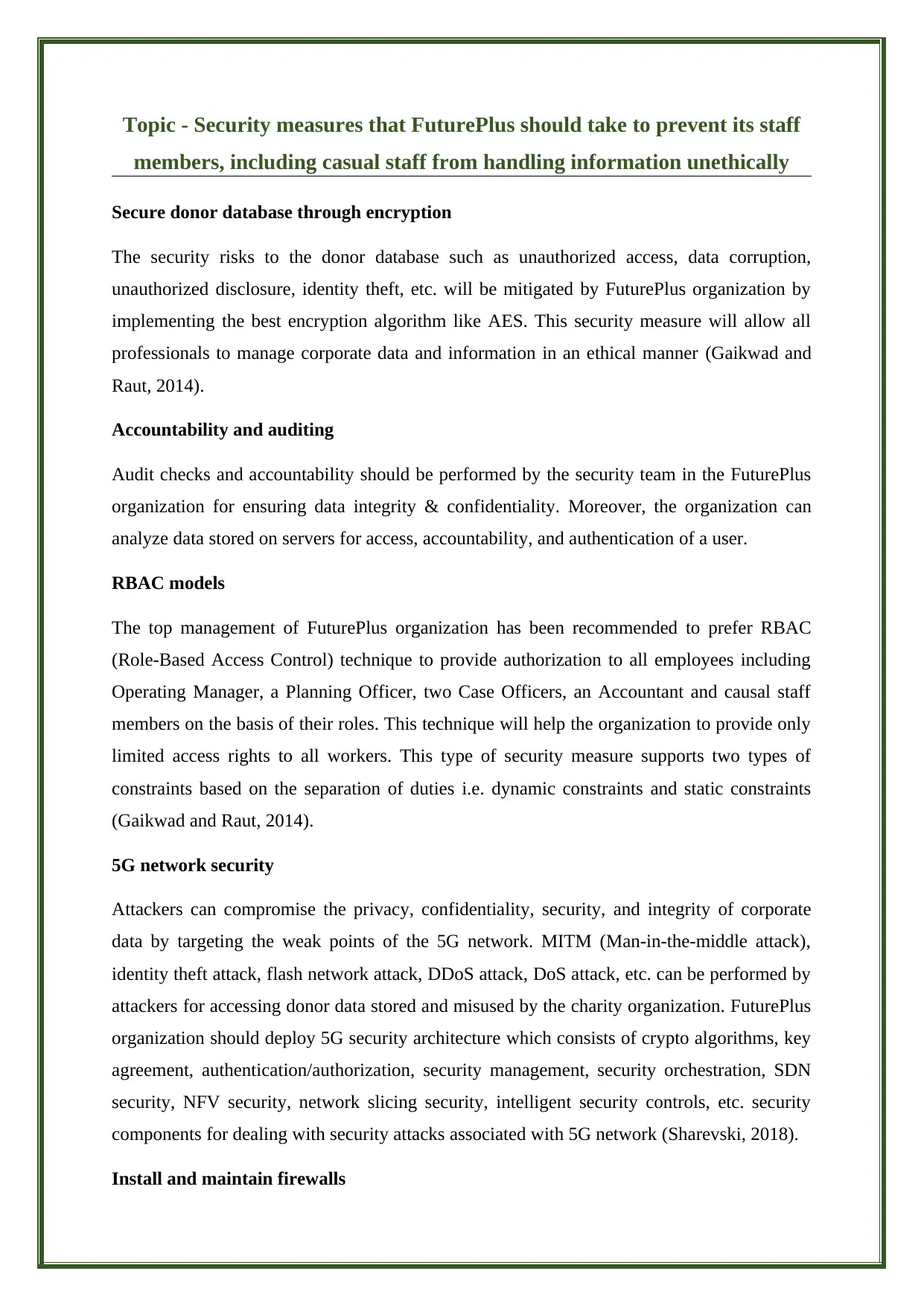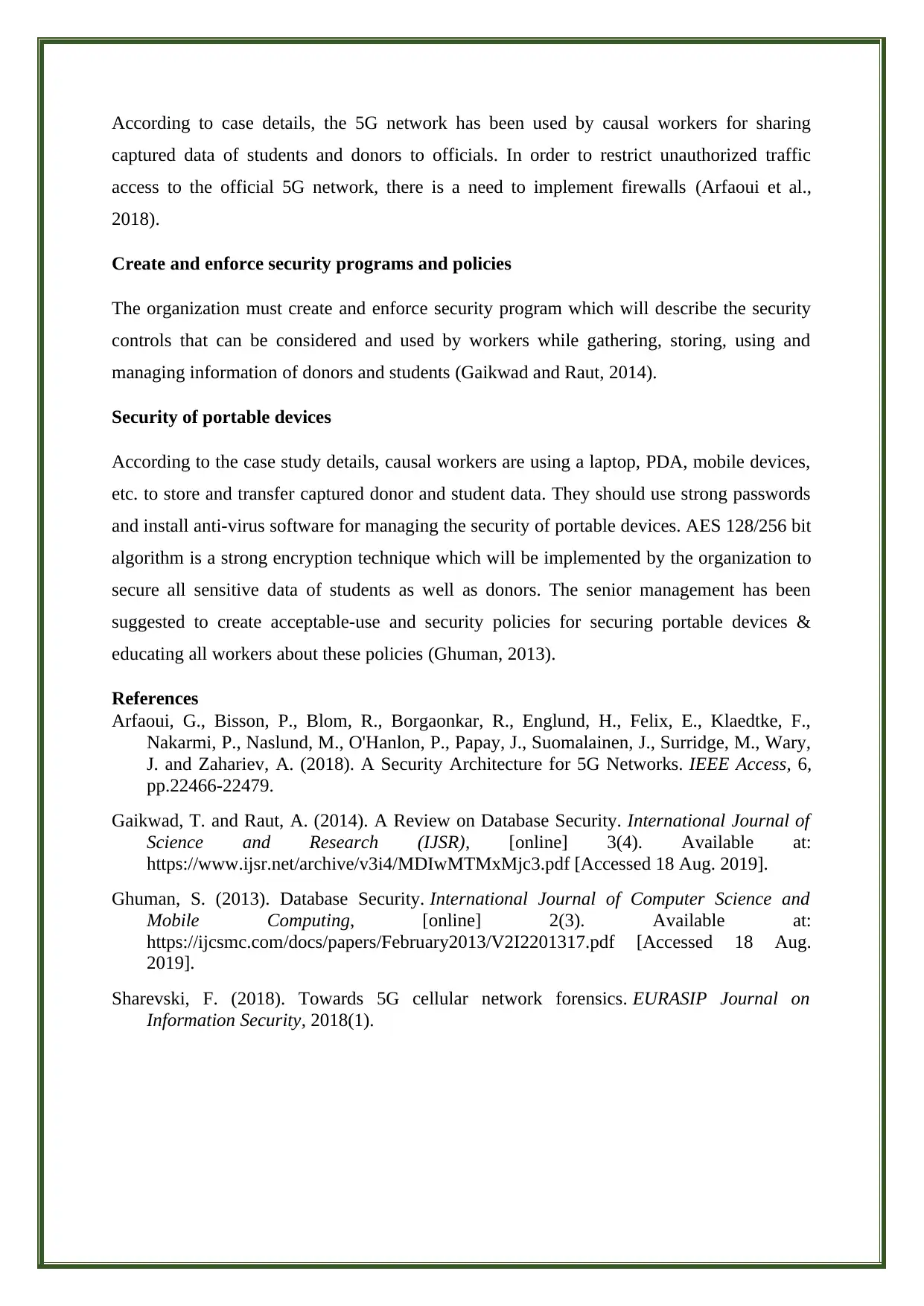FuturePlus: Security Measures to Prevent Unethical Data Handling
VerifiedAdded on 2022/09/22
|2
|765
|18
Report
AI Summary
This report provides a detailed analysis of security measures that FuturePlus should implement to prevent its staff, including casual workers, from handling information unethically. The report recommends securing the donor database through encryption using algorithms like AES to mitigate risks such as unauthorized access and data corruption. It emphasizes the importance of accountability and auditing through security team checks and the analysis of data stored on servers. Role-Based Access Control (RBAC) is proposed to grant employees access rights based on their roles. The report also addresses 5G network security, suggesting the deployment of a 5G security architecture to counter attacks, and recommends the installation of firewalls. Furthermore, the report stresses the creation and enforcement of security programs and policies, along with the implementation of security measures for portable devices, including strong passwords and anti-virus software. The report references several academic sources to support its recommendations.
1 out of 2





![[object Object]](/_next/static/media/star-bottom.7253800d.svg)